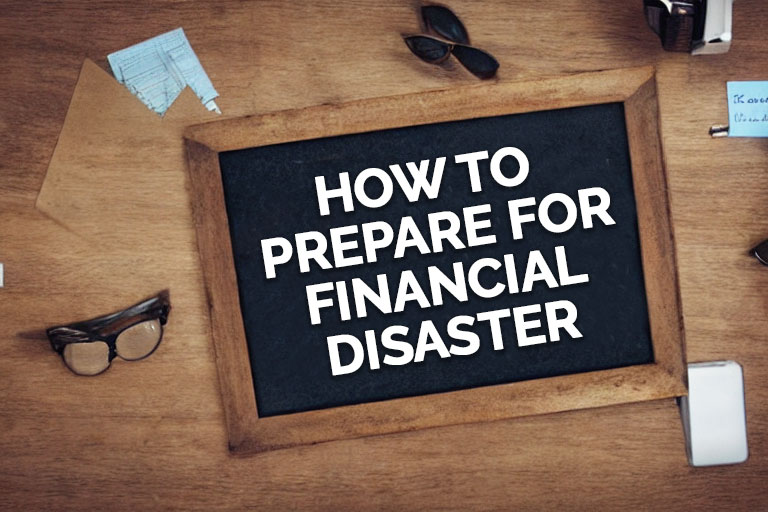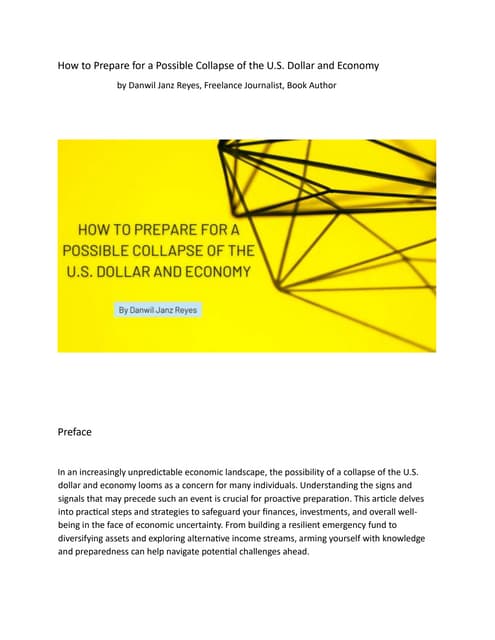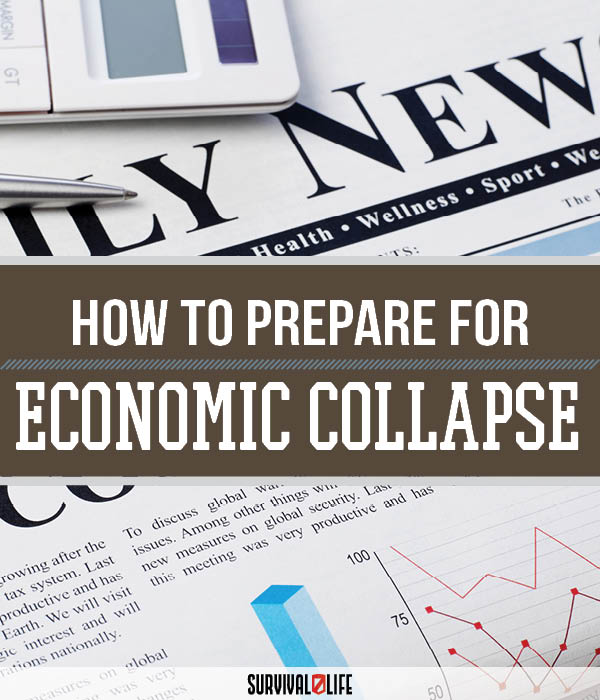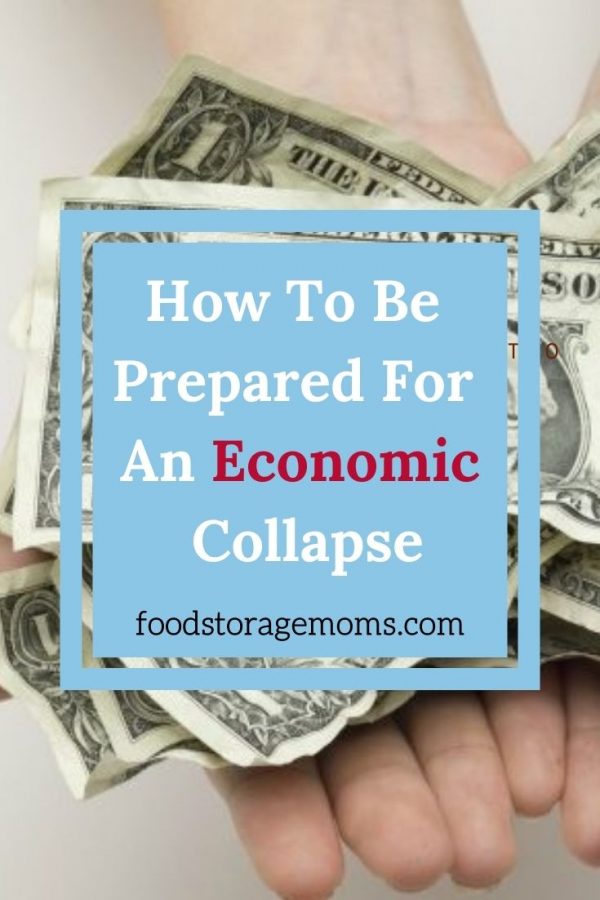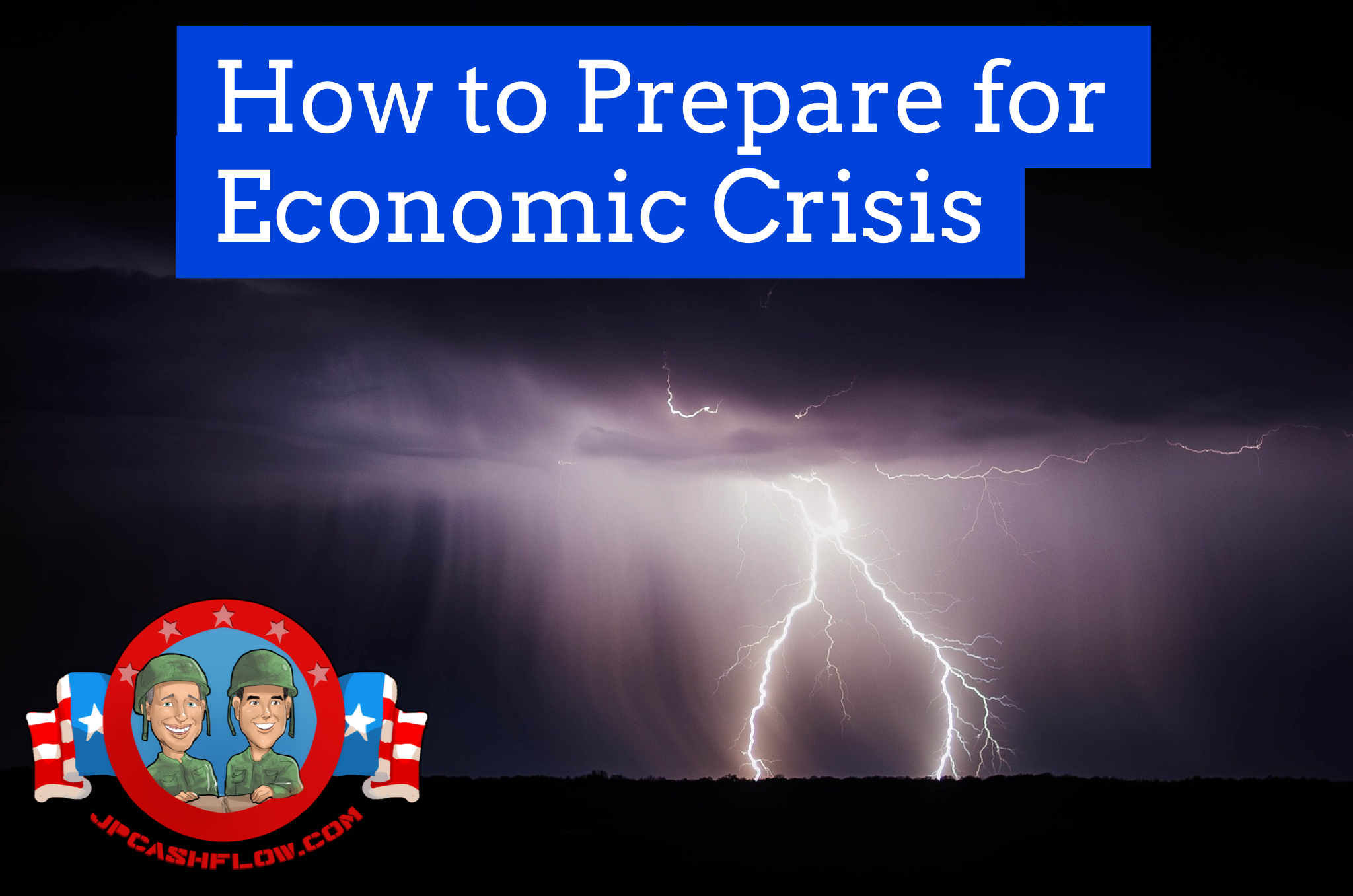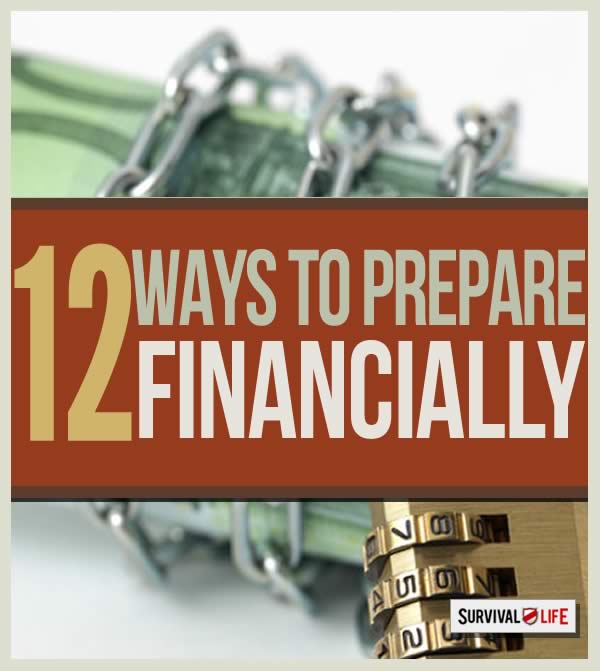How To Prepare For A Economic Collapse

Whispers of economic instability are growing louder, fueled by inflation, geopolitical tensions, and looming recessionary forecasts. While predicting the future is impossible, taking proactive steps to prepare for a potential economic downturn is prudent for individuals and families alike. Ignoring the warning signs could have dire consequences; understanding actionable strategies can provide a crucial safety net.
This article offers a practical guide to weathering a potential economic collapse. This is not about fear-mongering, but rather about providing information and resources to empower readers to make informed decisions. It outlines key areas to address, from securing finances and building essential supplies to developing vital skills and fostering community resilience.
Financial Fortification
The cornerstone of weathering any economic storm is a solid financial foundation. This involves more than just saving money; it requires a strategic approach to managing assets and mitigating risks.
Emergency Fund and Debt Reduction
Building a substantial emergency fund is paramount. Aim for at least 3-6 months' worth of living expenses in a readily accessible account. Financial advisors often recommend high-yield savings accounts or money market accounts for this purpose.
Simultaneously, aggressively reduce high-interest debt, such as credit card balances. Debt can become crippling during an economic downturn, as job losses and reduced income make repayments difficult.
Diversifying Investments
Avoid putting all your eggs in one basket. Diversify your investment portfolio across various asset classes, including stocks, bonds, and real estate. Consult with a qualified financial advisor to determine the appropriate asset allocation for your risk tolerance and financial goals.
Consider investing in assets that tend to hold their value during economic downturns, such as precious metals. However, beware of scams and do your research before investing in any alternative asset.
Essential Supplies and Self-Sufficiency
Ensuring you have access to basic necessities is crucial in an economic crisis. Supply chain disruptions and price increases can make everyday items scarce or unaffordable.
Food and Water Storage
Stockpile a supply of non-perishable food items that can last for several months. Focus on items with a long shelf life, such as canned goods, dried beans, rice, and pasta. Store water in food-grade containers, aiming for at least one gallon per person per day.
Learn basic food preservation techniques, such as canning, drying, and pickling. This will allow you to extend the shelf life of fresh produce.
Medical Supplies and First Aid
Assemble a comprehensive first-aid kit and learn basic first-aid skills. Include essential medications, bandages, antiseptic wipes, and pain relievers. Consider taking a CPR and first-aid course to prepare for medical emergencies.
Stock up on any prescription medications you require, if possible. However, be aware of expiration dates and consult with your doctor about safe storage and disposal practices.
Security and Defense
Protecting yourself and your family is a fundamental responsibility. Consider investing in home security measures, such as security systems and reinforced doors and windows.
Learn self-defense techniques and familiarize yourself with local laws regarding self-defense. However, prioritize de-escalation and avoidance whenever possible.
Developing Essential Skills
In a disrupted economy, practical skills become invaluable. Acquiring new skills can provide alternative income streams and increase your self-reliance.
Gardening and Food Production
Learn how to grow your own food. Even a small garden can provide a significant source of fresh produce. Start with easy-to-grow vegetables, such as tomatoes, lettuce, and herbs.
Consider raising chickens for eggs and meat. However, be aware of local regulations and the responsibilities involved in animal husbandry.
Repair and Maintenance Skills
Learn how to repair common household items and appliances. This can save you money and reduce your reliance on external services. Basic plumbing, electrical, and carpentry skills are particularly useful.
Learn how to maintain your vehicle. This includes changing oil, replacing tires, and performing basic repairs. This will help you keep your vehicle running longer and reduce maintenance costs.
Bartering and Trade
Develop skills that can be traded for goods and services. This could include anything from cooking and cleaning to repair work and tutoring. Bartering can become a valuable alternative to cash transactions during an economic crisis.
Build relationships with neighbors and community members who possess complementary skills. This will create a network of mutual support and exchange.
Community and Resilience
Individual preparedness is important, but community resilience is essential for long-term survival. Building strong social connections and fostering cooperation can help you weather any storm.
Building Relationships
Strengthen your relationships with family, friends, and neighbors. These relationships will provide emotional support, practical assistance, and a sense of community during challenging times. Participate in community events and volunteer your time to local organizations.
Organize neighborhood watch groups and share information about safety and security. This will help deter crime and build a stronger sense of community.
Local Resources and Networks
Identify and connect with local resources, such as food banks, community gardens, and mutual aid organizations. These resources can provide assistance and support during times of need.
Establish communication networks with neighbors and community members. This could include phone trees, email lists, or social media groups. This will allow you to share information and coordinate assistance during emergencies.
Preparing for an economic collapse is not a guarantee of survival, but it significantly increases your chances of weathering the storm. By taking proactive steps to secure your finances, build essential supplies, develop vital skills, and foster community resilience, you can empower yourself and your family to navigate challenging times with greater confidence and security. Remember, the key is not to panic, but to prepare, adapt, and support one another.





